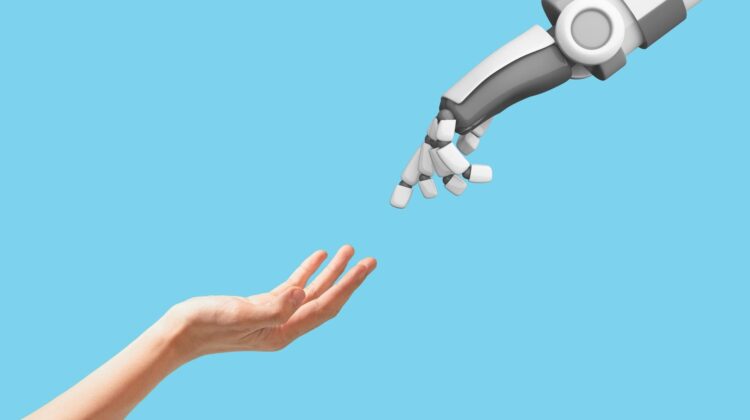
The Indelible Imprint of Artificial Intelligence on Healthcare in the 21st Century
In the illustrious panorama of advancements in the 21st century, the star performer is, without a doubt, Artificial Intelligence (AI). It has left an indelible imprint on a myriad of sectors, healthcare being the one of utmost importance. As a consequence of the virtuosity of AI, the healthcare sector is embarking on a journey filled with promise and thrill.
AI and Its Companion, Predictive Analytics: An Alliance Par Excellence
AI’s profound influence in healthcare springs from its synergy with predictive analytics. Predictive analytics, an arena that applies statistical methodologies to distil patterns from enormous data repositories, equips medical practitioners with pivotal insights into disease trends. Consequently, this enables them to devise highly precise diagnosis and treatment plans.
The alliance of AI and predictive analytics has pushed the envelope of what is achievable. With its capacity to plumb the depths of patient records, genetic codes, and other germane data, it brings about precise prognoses and as a corollary, enhanced patient care.
AI and Its Profound Impact on Imaging Diagnostics: A New Lens for Viewing Medical Data
AI has unfolded its immense potential in the realm of imaging diagnostics as well. Machine learning algorithms, an offshoot of AI, are adept at meticulous analysis of radiology reports, CT scans, X-rays and other imaging data. By identifying anomalies that may evade human scrutiny, AI empowers medical professionals to diagnose and treat life-threatening conditions like cancer at an early stage.
This amalgamation of AI and imaging diagnostics is not only augmenting patient recovery rates but also easing the burden on radiologists. By automatically identifying abnormalities in imaging data, AI permits radiologists to divert their attention to complex cases, thereby augmenting efficiency and productivity.
AI’s Revolutionary Impact on Drug Discovery: The Dawn of a New Pharmaceutical Age
AI has ushered in a new age of pharmaceutical innovation with its role in drug discovery. Traditional drug discovery methodologies, although laborious, time-intensive and fraught with high failure rates, have been completely revamped by AI’s ability to analyse copious amounts of data, thereby improving the odds of successful drug discovery.
AI’s role in drug discovery spans from identifying correlations between ailments and potential medications to predicting how different drugs might interact with the human body. This is accelerating the development of efficient, targeted treatments and conserving time and resources in the process.
AI and Personalised Medicine: A Tailor-Made Approach to Healthcare
The advent of personalised medicine has transformed the healthcare landscape, and AI has played an instrumental role in this transformation. AI analyses an individual’s genetic profile, lifestyle choices, and environmental influences to assist in developing customised treatment plans.
This methodology is a departure from the traditional generalised approach to treatment and offers solutions tailored to a person’s unique needs. The outcome is improved efficacy of treatments, fewer side-effects, and in the final analysis, superior patient care.
AI and Robotics in Surgery: The Apex of Precision
AI-backed robotic surgery is fast becoming a common spectacle in operation theatres. These robots, guided by surgeons, execute complex surgical procedures with unmatched precision and minimal invasiveness. AI provides the surgeon with pivotal real-time data during the operation.
By rapidly and accurately analysing data, AI can predict possible complications and advise the surgeon accordingly. This not only facilitates safer surgeries but also accelerates patient recovery times.
Navigating Challenges and Ethical Conundrums: Treading a Fine Line
The widespread adoption of AI in healthcare, while transformative, also ushers in a suite of challenges and ethical considerations that require thoughtful attention.
Data Privacy and Security: A Delicate Balance
AI’s extraordinary abilities are deeply rooted in data, and in healthcare, this data is intrinsically private and sensitive. Unsurprisingly, issues concerning data privacy and security have arisen. Despite substantial progress in data encryption and anonymisation techniques, the threat of data breaches lingers, posing a formidable challenge.
Bias in AI Algorithms: A Threat to Equitability
Another challenge is the potential for bias within AI algorithms. If the initial data used to train AI systems is unbalanced, it may lead to skewed results. This can compromise the quality and impartiality of healthcare services. It is therefore vital that AI algorithms are developed and trained using diverse datasets to guarantee fair care for all patients.
Ethical Decision-Making: The Man-Machine Quandary
The escalating role of AI in patient care engenders significant ethical questions. Is it right to entrust a machine with decisions that could alter a life? Can AI genuinely replicate the nuanced decision-making process that seasoned healthcare professionals employ? These intricate questions necessitate serious reflection as AI becomes increasingly embedded in healthcare.
AI and Healthcare Jobs: Striking the Right Balance
The ascent of AI stokes concerns about job displacement as well. While AI is set to automate monotonous tasks, it is also fostering new roles that previously did not exist. The focus should be on cultivating the skills necessary for these emerging roles and ensuring a seamless transition for healthcare professionals.
Epilogue: AI in Healthcare – An Exciting Yet Daunting Path Ahead
As AI advances unrelentingly in healthcare, the benefits are evident: improved patient outcomes, streamlined operations, and the prospect of personalised, patient-centric care. Yet, the path forward is fraught with challenges. The concerns surrounding data privacy, algorithmic bias, ethical decision-making, and job displacement cannot be dismissed lightly.
To summarise, the impact of AI on healthcare in the 21st century is substantial and far-reaching. A balanced approach that amplifies the advantages while conscientiously addressing the challenges can set the stage for a future where AI and healthcare progress in tandem. This will not only provide exceptional patient care but also have a transformative effect on lives globally.
Author: Andy Garret
Journalist freelancer, Health Manager in Private Company – Mexico.
Lives in London where he works as a specialist journalist with a number of technical magazines in the health and wellness sector.
